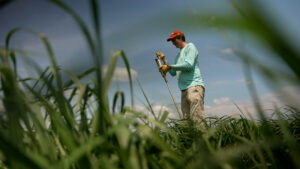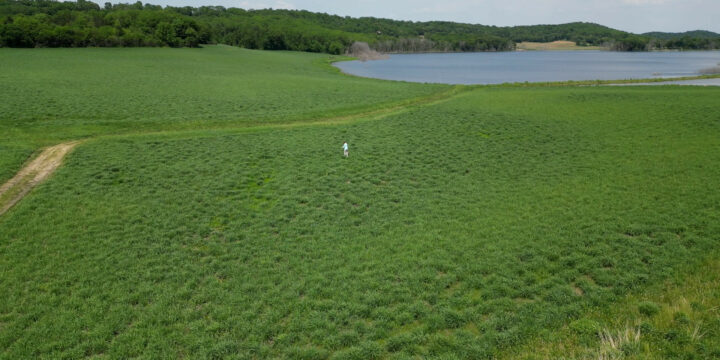Every five years, the University of Wisconsin Water Resources Institute (WRI) is evaluated to determine eligibility for continued support under the federal Water Resources Research Act of 1984, which is administered by the U.S. Geological Survey (USGS).
WRI recently received the results of that review of 2016-20 research, student support and information transfer. The headline is the USGS found that WRI is “performing at an outstanding level.”
The USGS review panel assessed WRI’s effectiveness in using its federal grant, as well as required matching funds, which come from the state of Wisconsin. The panel also called out notable features in how WRI operates:
- The support for high-quality research, with a special call-out to collaborative work on mercury cycling with UW-Madison and the USGS’s Mercury Research Lab. Another factor that was praised was the support for early faculty in the request for proposal process. In fact, the panel complimented the entire proposal review process that effectively draws on subject matter experts to evaluate what prospective investigators would study.
- An active and innovative information transfer effort that results in quality products. Reviewers particularly appreciated podcasting as a way to convey science stories.
- The focus on training post-graduates through fellowships with state agencies.
- The large-scale engagement with USGS, including at least five collaborations and 14 co- authored publications and joint work with students.
“We work every day to leverage our federal and state funding effectively to help communities across Wisconsin, and it is truly a collective team effort,” said Jennifer Hauxwell, WRI’s research director. “From the dozens of researchers at Wisconsin universities across the state who step up to address our shared water challenges to institute staff who coordinate our research program, create student training opportunities, manage the distribution of funding and communicate stories and archive findings, we are so very grateful. We still have a lot to learn about Wisconsin’s water resources and community needs, and we look forward to tackling future challenges and opportunities together.”

WRI is one of 54 national water research institutes. For 60 years, it has been a locally focused state and federal partnership supporting unbiased research and information transfer, which leads to safeguarding Wisconsin’s water quantity, quality and management. Some of the research projects supported during this evaluation period looked at naturally occurring contaminants like strontium, radium and manganese. Other projects explored land use practices and the resulting levels of nitrate in groundwater.




